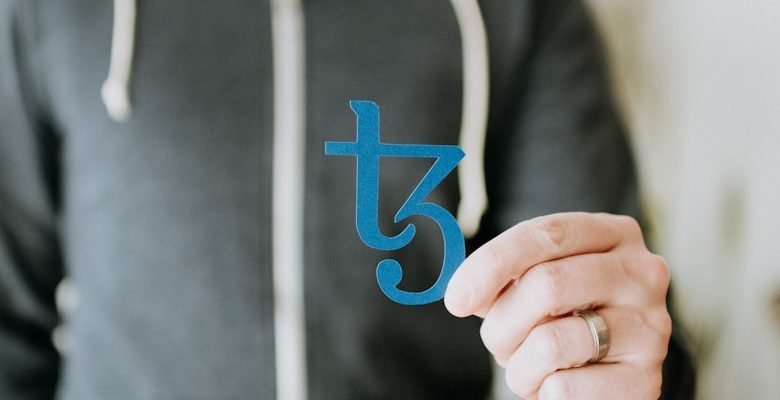The Importance of Regular Security Audits for Crypto Projects

- The growing threat of cyber attacks in the cryptocurrency industry
- Identifying vulnerabilities in crypto projects through security audits
- Ensuring the safety of user funds and data in the digital asset space
- The role of regular security audits in preventing security breaches
- Building trust and credibility with investors through robust security measures
- Compliance with industry regulations and best practices for crypto projects
The growing threat of cyber attacks in the cryptocurrency industry
The cryptocurrency industry is facing a growing threat from cyber attacks. As the popularity of digital assets continues to rise, so does the interest from malicious actors looking to exploit vulnerabilities in crypto projects.
Hackers are constantly evolving their tactics to steal funds, disrupt operations, and damage the reputation of cryptocurrency platforms. In recent years, we have seen high-profile hacks leading to millions of dollars in losses for both investors and project teams.
Security audits play a crucial role in identifying and addressing these vulnerabilities before they can be exploited by cyber criminals. By conducting regular assessments of their systems and code, crypto projects can proactively strengthen their defenses against potential threats.
Failure to prioritize security audits can have devastating consequences for crypto projects, including financial losses, regulatory scrutiny, and loss of trust from users. It is essential for teams to invest in comprehensive security measures to protect their assets and reputation in the increasingly risky landscape of the cryptocurrency industry.
In conclusion, the threat of cyber attacks in the cryptocurrency industry is real and growing. Regular security audits are a necessary step for crypto projects to stay ahead of these threats and safeguard their assets and users. By taking proactive measures to strengthen their defenses, teams can mitigate the risks associated with operating in this high-stakes environment.
Identifying vulnerabilities in crypto projects through security audits
Crypto projects are not immune to security vulnerabilities, which can have devastating consequences for both the project itself and its users. Security audits play a crucial role in identifying these vulnerabilities before they can be exploited by malicious actors. By conducting regular security audits, crypto projects can proactively address any weaknesses in their code and infrastructure, helping to protect the integrity of the project and the assets of its users.
Ensuring the safety of user funds and data in the digital asset space
Ensuring the security of user funds and data in the digital asset space is paramount for the success and trustworthiness of crypto projects. Regular security audits play a crucial role in identifying vulnerabilities and weaknesses in the system that could potentially be exploited by malicious actors. By conducting these audits on a consistent basis, crypto projects can stay one step ahead of potential threats and protect their users from falling victim to cyber attacks.
One of the main reasons why security audits are so important for crypto projects is to prevent unauthorized access to user funds. Hackers are constantly looking for ways to exploit vulnerabilities in the system to steal funds, and without proper security measures in place, users are at risk of losing their investments. By conducting regular audits, crypto projects can identify and patch up any weaknesses in their security protocols, ensuring that user funds are kept safe and secure.
In addition to protecting user funds, security audits also help safeguard user data from being compromised. In the digital asset space, sensitive information such as personal details and transaction history is at risk of being accessed by cybercriminals if proper security measures are not in place. By regularly auditing their systems, crypto projects can ensure that user data is encrypted and protected from unauthorized access, providing users with peace of mind knowing that their information is secure.
Overall, the importance of regular security audits for crypto projects cannot be overstated. By taking proactive measures to identify and address security vulnerabilities, crypto projects can protect user funds and data from falling into the wrong hands. This not only helps to build trust and credibility among users but also ensures the long-term success and sustainability of the project in the highly competitive digital asset space.
The role of regular security audits in preventing security breaches
Regular security audits play a crucial role in preventing security breaches within crypto projects. These audits involve a comprehensive review of the project’s security measures, identifying vulnerabilities, and implementing necessary changes to enhance security. By conducting regular audits, crypto projects can proactively identify and address potential security risks before they are exploited by malicious actors.
Security audits help crypto projects stay one step ahead of cyber threats by ensuring that security protocols are up to date and effective. This proactive approach can help prevent security breaches that could result in financial losses, reputational damage, and legal consequences. By regularly assessing security measures, crypto projects can maintain the trust and confidence of their users and investors.
In addition to identifying vulnerabilities, security audits also help crypto projects comply with industry regulations and best practices. By following established security standards, such as those outlined by the Blockchain Security Council, crypto projects can demonstrate their commitment to protecting user data and assets. This can help attract new users and investors who prioritize security and compliance in their decision-making process.
Overall, regular security audits are an essential component of a robust security strategy for crypto projects. By investing in proactive security measures, crypto projects can mitigate the risk of security breaches and build a strong foundation for long-term success. Prioritizing security through regular audits demonstrates a commitment to protecting user assets and maintaining the integrity of the project’s ecosystem.
Building trust and credibility with investors through robust security measures
Implementing robust security measures is crucial for building trust and credibility with investors in the crypto space. By conducting regular security audits, crypto projects can demonstrate their commitment to protecting investor funds and sensitive information. These audits help identify any vulnerabilities or weaknesses in the project’s security infrastructure, allowing for prompt remediation before any potential breaches occur.
Investors are increasingly concerned about the security of their investments in the volatile world of cryptocurrencies. By proactively addressing these concerns through regular security audits, crypto projects can differentiate themselves from their competitors and attract more investors. This commitment to security not only protects investors’ interests but also enhances the overall reputation of the project in the eyes of the public.
Compliance with industry regulations and best practices for crypto projects
Ensuring compliance with industry regulations and adhering to best practices is crucial for the success and credibility of crypto projects. By following these guidelines, projects can demonstrate their commitment to security and transparency, which in turn can attract investors and users.
Regulations such as KYC (Know Your Customer) and AML (Anti-Money Laundering) are designed to prevent fraudulent activities and protect users. By implementing these measures, crypto projects can build trust and legitimacy in the eyes of regulators and the public.
Furthermore, following best practices such as regular security audits can help identify and address vulnerabilities before they can be exploited by malicious actors. These audits can also provide valuable insights into the project’s overall security posture, allowing for continuous improvement and risk mitigation.
Overall, compliance with industry regulations and best practices is essential for the long-term success and sustainability of crypto projects. By prioritizing security and transparency, projects can build a solid foundation for growth and innovation in the rapidly evolving crypto space.



